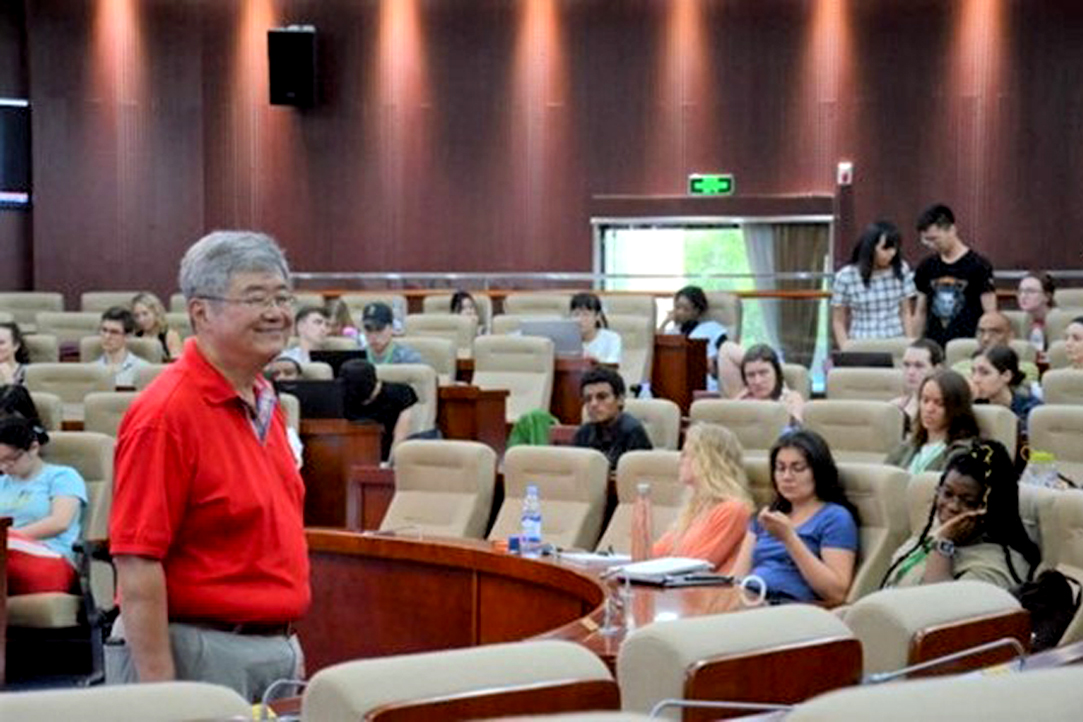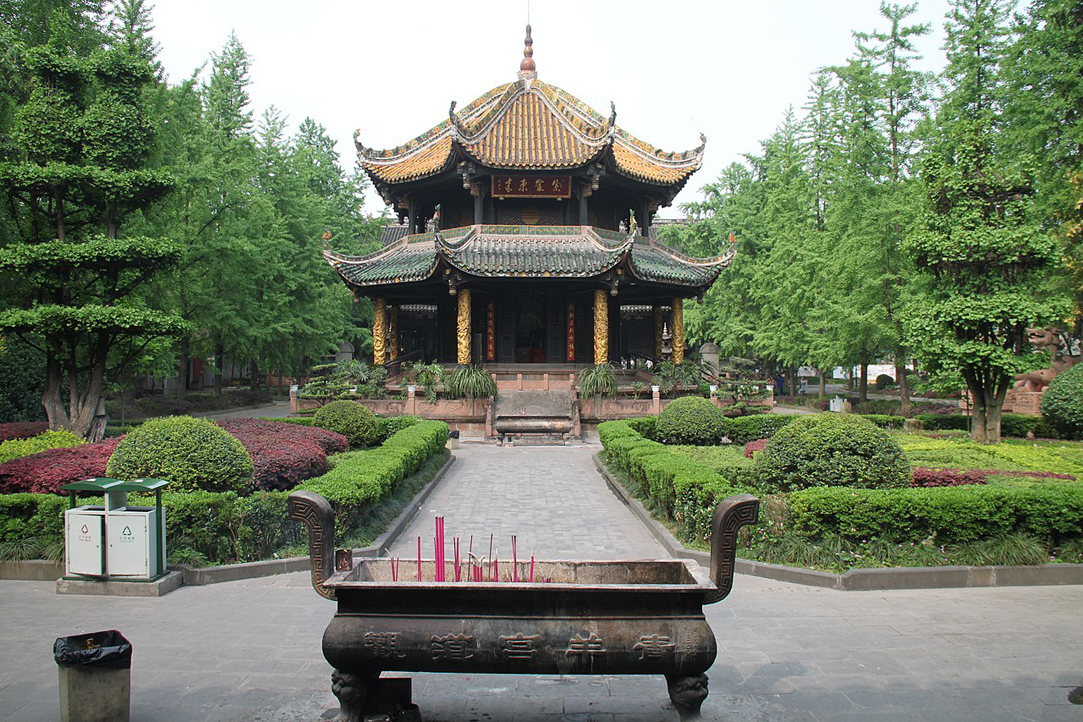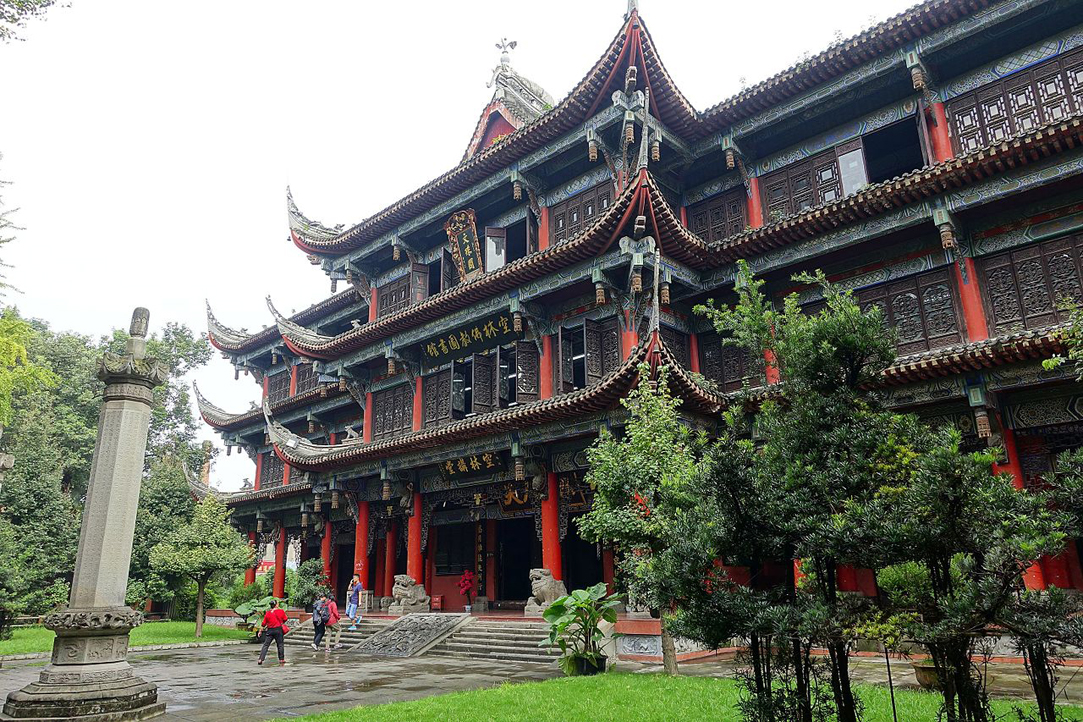HSE ICEF and China’s SWUFE RIEM Launch International Undergraduate Double-Degree Programme

HSE University and the Southwestern University of Finance and Economics (SWUFE) have signed a cooperation agreement to jointly offer an undergraduate double-degree programme in economics and finance. Within this collaboration, HSE ICEF is partnering with the SWUFE Research Institute of Economics and Management (RIEM), founded in 2006 as a premier research institution and provider of economics and finance education meeting high international standards.

RIEM Executive Dean Yan Dong, MSc London School of Economics, PhD University of Essex, about RIEM:
"Our Institute is quite special. From its name, you feel like we are a research Institute, but actually we are also a teaching unit. We have around 1,000 undergraduate, master’s and PhD students. Our Institute is special because all our faculties received PhD degrees overseas – from universities in Europe, USA, Asia and other countries. All our faculties speak fluent English, and the teaching language – the working language in our Institute – is English. We have more than 100 international students who study degree programmes in our Institute. That’s the special thing about this Institute – because it’s quite an internationalized institution, and we have faculties that don’t speak Chinese at all – they are international faculties. And also for the undergraduates we have Economics, Accounting, Finance, and Management – four majors; and for master’s level – Economics, Finance, and Management; and for the PhD level we have quite different things".
This programme awards graduates with two diplomas: one from the Higher School of Economics (majoring in Economics) and the other from SWUFE. Current ICEF students, specifically those admitted in 2023, will have the opportunity to embark on this double-degree track starting September 2024, following the integrated curriculum designed for both Economics and Finance majors. Participants can choose either specialization. To qualify for admission, ICEF students must successfully complete their first-year courses and pass their exams. Admitted students will spend their second and third years of study at RIEM (Chengdu, China) and return to ICEF for their fourth year. There are no additional fees; learners are only expected to pay tuition fees for the respective year of study at their home university.

ICEF Director Sergey Yakovlev about the cooperation with RIEM and the programme benefits:
"ICEF has over 25 years of experience in delivering double-degree programmes with the University of London. In 1997 we were Russia’s first to pioneer such programmes and start one with the London School of Economics.
This new programme reflects the comparability of academic standards between the partners: study plans, course content, faculty, students, teaching methods, and assessment criteria. It meets all the fundamental "golden" rules of double-degree programmes formulated in the early 2000s in Europe: joint development of an integrated curriculum, symmetrical student mobility, and automatic recognition of exam results. Programmes with such design are called symmetrical and are more common at the master's level, where they are easier to organize. According to our information, this is the first such symmetrical and equal undergraduate double-degree programme in economics with a leading Chinese university in Russia.
The ICEF-RIEM double-degree programme is designed to equip students with comprehensive knowledge and skills essential for careers in economics and finance. With its 2+2 structure, the programme enables students to explore the economic systems of both China and Russia, offering social, intercultural, and linguistic immersion. This experience enhances graduates' employability within or in collaboration with these countries, as well as their prospects for admission to top-tier postgraduate programmes.
In terms of benefits for ICEF and RIEM, these include bolstered international recognition, increased attractiveness and competitiveness of the programmes, as well as the opportunities presented by this new partnership".

ICEF BSc Programme Academic Supervisor Oleg Zamkov about the ICEF-RIEM double-degree programme:
"HSE ICEF and SWUFE RIEM make a perfect match as partners for this programme due to their specialized focus on economics and finance and closely aligned curricula. SWUFE covers all the courses offered at ICEF, and vice versa. These courses encompass not only core subjects like Microeconomics, Macroeconomics, Econometrics, Accounting, and Corporate Finance, but also specialized topics such as Investment Management, Banking, Financial Management, applied finance courses, and more. Importantly, both institutions offer practical courses tailored to the specific needs of the national economies where they are taught, reflecting their unique characteristics alongside the general principles and approaches of each discipline.
For ICEF students, this programme offers unique courses that delve into China's financial markets and economy, providing insights into its culture, society, history, and geography, as well as learning Chinese language. Similarly, Chinese students will benefit from a range of Russia-specific courses, particularly those that illuminate Russia's economic and political landscape, as well as its history, statehood, and language.
In the programme's final stage, students will prepare their graduation theses under the joint supervision of Russian and Chinese professors, culminating in presentations to a board composed of academics from both countries. This comprehensive curriculum equips graduates with the knowledge and skills necessary to pursue careers as financiers or economists, or to pursue further studies anywhere in the world. Given the rapidly growing Russia-China relations, this programme is especially relevant for those interested in opportunities in China".
Southwestern University of Finance and Economics (SWUFE)
- Founded: 1925 in Chengdu, People's Republic of China.
- Structure: Comprises 7 research facilities, 20 colleges, and schools offering majors in economics, finance, management, and social sciences.
- Enrollment: Approximately 24,000 students, including 600 international students. Faculty: Over 1,300.
- Rankings: Ranked 32nd globally among finance schools (2nd in China) and 45th among economics schools (3rd in China) according to the Shanghai Ranking/ARWU.

Research Institute of Economics and Management (RIEM)
- Programmes: Offers 4 undergraduate, 6 master’s, and 5 PhD programmes, all taught in English.
- Enrollment: Approximately 1,000 students, with around 10% from international backgrounds.
- Faculty: Comprises 45 teachers, all holding PhD degrees from esteemed universities, with research regularly published in international journals.

10 interesting facts about Chengdu
1. Chengdu is the capital city of Sichuan province and also the center of Western China. It is part of the Chengdu-Chongqing Economic Circle, alongside Chongqing, encompassing a region with over 100 million inhabitants. Situated approximately 300 km apart, these two megacities are at the forefront of China's economic development. The cluster boasts cutting-edge electronic industries, thriving mechanical engineering firms, a robust financial services sector, renowned research and educational institutions, and aspires to emerge as a global transportation hub.

2. Chengdu is situated within the Sichuan basin, at an elevation of 500 meters above sea level, and shares a border with Tibet. Flowing within the city limits is the Jin River.


3. Chengdu traces its roots back to the 4th century BC when it was founded by the Kingdom of Shu. According to historical records, the initial settlers were instructed to establish a province in the first year, a settlement in the second year, and a city in the third year. The name "Chengdu" derives from "cheng du," which translates to "to become a capital."


4. Chengdu is recognized as the leading financial hub in the Asia-Pacific region and holds the 35th position in The Global Financial Centres Index 2021.

5. Chengdu ranks among the world's top 25 cities by scientific research output and boasts the largest concentration of universities and research institutes in Western China. The city prioritizes quality of life, offering affordable housing, excellent public schools, abundant greenery, and extensive bike lanes.
6. Chengdu's western mountainous region hosts a vast primeval forest teeming with diverse biological resources and serves as a habitat for giant pandas. It is here that the Chengdu Research Base of Giant Panda Breeding is located.

7. Chengdu is a recognized national center of electronics and IT industries, housing several key electronics research and development institutes.
8. As Western China's largest trade center, Chengdu stands at the forefront of commerce and trade, ranking first among the region's cities in terms of foreign investment scale.
9. Chengdu holds the official UNESCO designation as a gastronomic city, celebrated for its renowned Sichuan cuisine characterized by the bold use of spicy chilies and peppercorns. Notably, Chengdu is famed for its hot pot—a traditional Sichuanese delicacy featuring a variety of vegetables, fish, and meat cooked in a flavorful and spicy broth.

10. Chengdu's temples provide a glimpse into the city's rich history and offer a serene escape from the hustle and bustle of modern life. Nestled within picturesque parks filled with chirping birds, these temples offer a perfect setting for leisurely strolls and contemplation.

